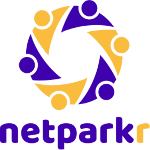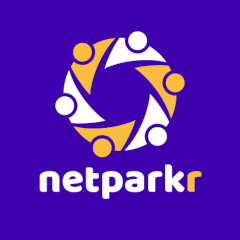Mike is the founder of Upvoty, a SaaS user feedback tool. He has increased Upvoty’s monthly recurring revenue (MRR) to $20,000 and is working with an eight-person totally remote workforce. He saw an opportunity to create a user feedback platform and started working on Upvoty three years ago. He has outsourced the majority of Upvoty-related tasks to focus on his vlog and podcast. Mike learned that if he is not passionate about helping his clients, his business won’t last.
Mike is the creator of the SaaS user feedback tool Upvoty. Within two months of the product’s introduction in 2019, he had earned $1,000 in MRR. He has increased Upvoty’s monthly recurring revenue (MRR) to $20,000 while working with an eight-person totally remote workforce (and growing by over $1,000 per month).
What are you currently working on and who are you?
I’m Mike, a business owner from Holland who is 34 years old. I am the founder of the user feedback tool Upvoty and the SaaS Pirates Podcast moderator.
After seeing an opportunity to create a user feedback platform, I started working on Upvoty three years ago. We created a small group of engineers and marketers, and in August 2018 we launched the first beta of our SaaS product. We discovered that our product had the potential to be a profitable SaaS service during the beta. After launching in February 2019, we hit $1,000 in MRR a short while later.
We now have an MRR of $20,000 in 2021 and are growing by more than $1,000 per month.
I have outsourced the majority of Upvoty-related tasks because I am not a coder. I can concentrate on my vlog and podcast since I have engineers working on the software and marketers working on marketing initiatives like our “Upvoty on Product” blog.
What is your background, and how did you come up with this idea?
My team and I were developing our prior SaaS product in the beginning of 2018. ARR for this SaaS company was in excess of $1,000,000. Additionally, as the number of customers grew, so did the volume of feedback. We used to keep track of feedback on a spreadsheet, but eventually it became unworkable.
I immediately understood that I could make my own user feedback tool after looking into other ones. I was no longer satisfied with the product we were building, and instead of employing existing ones, I thought of designing a new one. We had a great product, but I opted to sell it since I wasn’t passionate about the industry we were in. One of the most crucial lessons I ever learned was that if you’re not enthusiastic about helping your clients, your business won’t last.
How did you turn a concept into a finished product?
We created a landing page with an instructional video and a sign-up form, and we encouraged people to join up if they were interested in a service like Upvoty. I discovered this way of product validation from my experience with Dropbox, and it was simple.
We started to work on it mostly because we wanted to develop the product for our personal usage after only two months, when we had more than 300 sign-ups. The majority of these registrations came from websites like BetaList, Makerlog, Product Hunt, and Indie Hackers. In addition, we published a few eBooks, made significant blog content marketing investments, and performed a ton of interviews (which improved both our brand and SEO rankings). In order to find the first beta testers, I also promoted it within my network (at the time, I had a substantial following on Instagram and YouTube) and actively engaged in Facebook groups.
We developed a first version of the present product within three months, which was really basic but had all the information we had to go to the next validation stage: figuring out how users will use it.
Soon after our initial public debut, real proof came in the form of paying customers! From that point on, we proceeded to serve our clients (of course using our software) and started creating features depending on their needs and problems.
What marketing techniques did you use to grow your company?
We started off concentrating on content marketing. Most of our ICPs (ideal customer characteristics) are product managers or early-stage startups. They both want to learn new things. We might urge them to utilize a technology like Upvoty by giving them material that may assist them in producing a better product since, as we’ve seen personally, carefully documenting all the criticism and requests is time-consuming and unsustainable.
In addition, we performed a lot of interviews, sponsored a lot of podcasts, and advertised Upvote to my YouTube following.
The most effective marketing technique was our product. We didn’t include a ‘Powered by Upvoty’ remark or link to our feedback site because we think the product is great (at least, we don’t). Because the customers of our consumers want to use the same feedback program, we get recommendations from our own product. Our business is made known to new potential clients when our customers post their Upvote feedback websites or forums. They will proceed, sign up for a trial, and stay on the website if they feel the need for a feedback instrument.
What are you doing right now? What are your long-term goals?
We have grown organically to $20,000 in monthly recurring income with an eight-person, totally remote crew. We need more team members, particularly in the area of customer care, since our user base is growing (today, over 500 firms are using our product).
Although it may seem optimistic, we want to achieve an MRR of over $50,000 the next year. To achieve this target, we will focus exclusively on sales and marketing.
My personal goal is to increase the number of videos I upload to my YouTube channel. Let’s grab that silver play symbol if I can because I haven’t yet achieved 11,000 subscribers ;)!
What have you discovered to be your most significant lessons since founding Upvote?
The most crucial lesson, as previously said, is to concentrate on a subject you are passionate about. If not, it will eventually wipe you out.
I’ve learnt to restrict your target audience, especially when you’re just starting out, from releasing more than five goods.
My favorite phrase is “Dream big, but start small.” Make sure your product is helping a small number of customers as successfully as possible before expanding.
What were the toughest obstacles you overcame? What were your biggest mistakes?
Thankfully, Upvoty has not yet presented us with any major challenges. But because it is inevitable when growing a firm, I am sure they will show up. But I also constantly keep in mind what Ryan Holiday said in his book, “The Obstacle is the Way” I never think of things as challenges or drawbacks.
What equipment and sources would you recommend?
Asana is in charge of managing my whole personal and professional existence. I advise adopting a project management or task management tool like Asana as a result. Every task, potential to-do, and thought is simply entered into the program. This aids in clearing my mind so that I can focus on the work at hand without worrying about responsibilities in the future.
I’d suggest reading Intercom on Starting Up, especially if you’re creating a SaaS. It helped me start from scratch while creating a product.
For further information
You may follow me on my blog, Instagram, and YouTube.
We gather unique business case studies from all over the internet, to inspire you with a wide range of business ideas. This case study was supervised by our team and it definitely caught our interest. You can find other inspiring business stories here.







